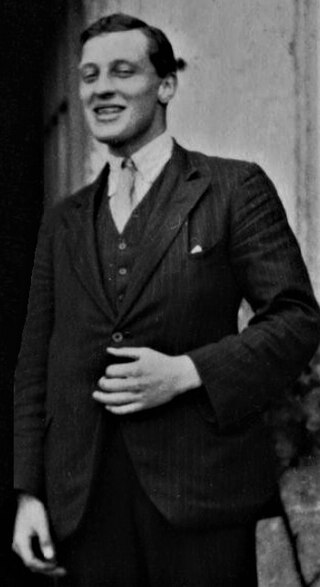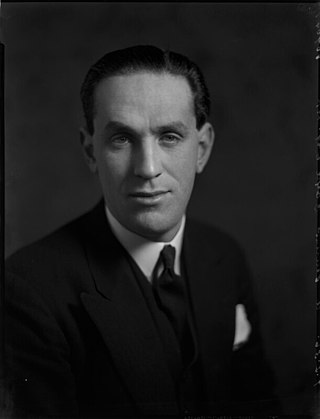
The Mau Mau rebellion (1952–1960), also known as the Mau Mau uprising, Mau Mau revolt, or Kenya Emergency, was a war in the British Kenya Colony (1920–1963) between the Kenya Land and Freedom Army (KLFA), also known as the Mau Mau, and the British authorities. Dominated by Kikuyu, Meru and Embu fighters, the KLFA also comprised units of Kamba and Maasai who fought against the European colonists in Kenya, the British Army, and the local Kenya Regiment.

Evelyn Baring, 1st Baron Howick of Glendale,, was Governor of Southern Rhodesia from 1942 to 1944, High Commissioner for Southern Africa from 1944 to 1951, and Governor of Kenya from 1952 to 1959. Baring played an integral role in the suppression of the Mau Mau rebellion. Together with Colonial Secretary Alan Lennox-Boyd, Baring played a significant role in the government's efforts to deal with the rebellion, and see Kenya through to independence. Baring was aware of abuses against Mau Mau detainees. He was elevated to being the 1st Baron Howick of Glendale in 1960.

Andrew Roberts, Baron Roberts of Belgravia,, is an English popular historian, journalist and member of the House of Lords. He is the Roger and Martha Mertz Visiting Research Fellow at the Hoover Institution at Stanford University and a Lehrman Institute Distinguished Lecturer at the New-York Historical Society. He served as a trustee of the National Portrait Gallery from 2013 to 2021.

Alan Tindal Lennox-Boyd, 1st Viscount Boyd of Merton, CH, PC, DL, was a British Conservative politician.
The 1959 Hola massacre was a massacre committed by British colonial forces during the Mau Mau Uprising at a colonial detention camp in Hola, Kenya.
Fitzval Remedios Santana Neville de Souza, often known as F.R.S. de Souza and Fitz de Souza, was a Kenyan lawyer and politician who was an important figure in the campaign for independence for Kenya, a member of the Kenyan parliament in the 1960s and Deputy Speaker for several years. He helped provide a legal defence for those accused of Mau Mau activities including the Kapenguria Six, and he was one of the people involved in the Lancaster House conferences held to draw up a constitutional framework for Kenyan independence.
The Muthaiga Country Club is a club in Nairobi, Kenya. It is located in the suburb of Muthaiga, about 15 minutes’ drive from the city centre.
The Kikuyu Home Guard was a government paramilitary force in Kenya from early 1953 until January 1955. It was formed in response to insurgent attacks during the Mau Mau Uprising.
The Kapenguria Six – Bildad Kaggia, Kung'u Karumba, Jomo Kenyatta, Fred Kubai, Paul Ngei, and Achieng' Oneko – were six leading Kenyan nationalists who were arrested in 1952, tried at Kapenguria in 1952–53, and imprisoned thereafter in Northern Kenya.

Imperial Reckoning: The Untold Story of Britain's Gulag in Kenya, published in the UK as Britain's Gulag: The Brutal End of Empire in Kenya, is a 2005 non-fiction book written by Caroline Elkins and published by Henry Holt. It won the 2006 Pulitzer Prize for General Non-Fiction.
Gakaara wa Wanjaũ was a prolific Gĩkũyu author, historian, editor and publisher from Kenya.
Ndeiya is located in Kiambu County, Kenya, and is near the Great Rift Valley. The name is derived from a Maasai word.
The Lari massacre was an incident during the Mau Mau Uprising in which the Mau Mau massacred approximately 74 people, including some members of the loyalist Home Guard, but mostly their families: women, children and elderly relatives. Those murdered included prominent local loyalist Luka Kangara. A total of 309 rebels were prosecuted for the massacre, of which 136 were convicted. Seventy-one of those convicted were executed by hanging.
Dame Margery Freda Perham was a British historian of, and writer on, African affairs. She was known especially for the intellectual force of her arguments in favour of British decolonisation in the 1950s and 1960s.
The Foreign and Commonwealth Office Migrated Archives are a collection of about 20,000 files and other records created by the governments of 37 British colonial dependencies, removed to the UK at independence, and held clandestinely for decades in various repositories in and around London. They came only from territories administered by the Colonial Office, so not from India and other dependencies administered by the India Office and its predecessors, whose records are in the India Office Records at the British Library.

Winning hearts and minds is a concept occasionally expressed in the resolution of war, insurgency, and other conflicts, in which one side seeks to prevail not by the use of superior force, but by making emotional or intellectual appeals to sway supporters of the other side.
The Ruck Family massacre took place during the Mau Mau Uprising. Farmer Roger Ruck, his wife Esme and six-year-old son Michael, along with one of their African servants, were killed by Mau Mau, one of whom allegedly worked for the family. The killing shocked the European community in Kenya and was widely reported in the Kenyan and British press, with many including graphic photographs of the dead child. The incident was significant in radicalising the settler population. Within 48 hours of the killings, 1,500 European settlers marched on Government House, demanding action from then Governor of Kenya Evelyn Baring.
Terence Gavaghan was a British colonial administrator. As a colonial district officer in Kenya, he was responsible for six detention centres in Mwea during the Mau Mau insurrection of the 1950s.
Legacy of Violence: A History of the British Empire is a 2022 nonfiction history book by American historian and professor Caroline Elkins. The book covers the history of the British Empire from the Great Bengal famine of 1770 through the post-World War II period of recurring end-of-empire insurgencies up until the present-day, including the Mau Mau High Court case and the ongoing imperial history wars. The book was short-listed for the 2022 Baillie Gifford Prize for Non-Fiction.






